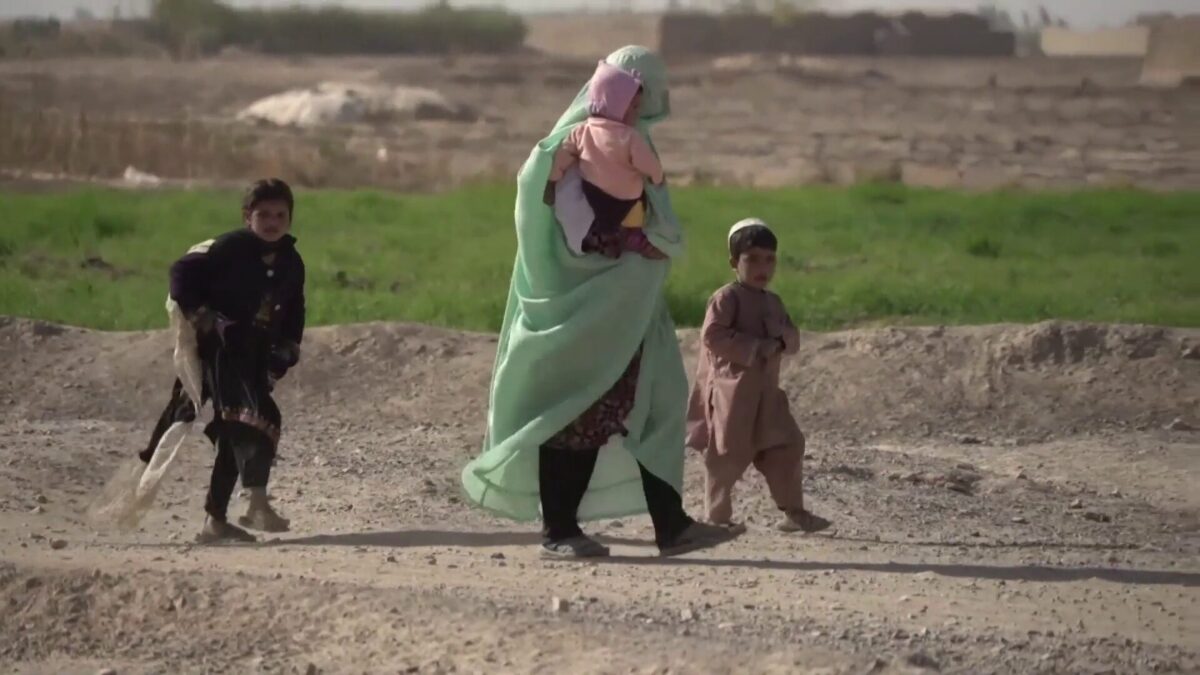While Abdul Kabir, the Taliban’s deputy chief minister, has claimed that poverty and unemployment are remnants of the previous government, many in Afghanistan say the Taliban has not effectively tackled these issues, with their economic conditions worsening daily.
A family interviewed in this story says they are struggling to afford even one meal a day and another and that they resorted to consenting to selling their underage daughters to marriage due to poverty.
Shaima, a displaced resident of Badghis province and mother of six, shared her plight.
Her husband, a laborer, struggles to provide for the family, forcing them to marry off their daughters early in hopes of securing another breadwinner. “If we had anything, we wouldn’t have given our daughters off to early marriages,” Shaima stated. “We cook among the garbage because of hunger; our times are bitter this winter.”
These stories highlight the dire living conditions many Afghans face.

Kabir discussed these issues in a meeting with representatives from the United Nations High Commissioner’s Asian section. However, Kabul residents argue that their economic situation has only deteriorated since the Taliban’s takeover, contradicting claims of improvement.
Jalal, a resident of Kabul, expressed desperation: “We have no bread to eat. I have a baby; I don’t have money to buy him food. He is hungry; His mother doesn’t have milk either.”
Bakht Bibi, another Kabul resident, added, “There is no water to drink; we do not have fuel. We are caught by the punishment of God; I don’t sleep from the cold until morning. Nobody has helped us with carpets and clothes. We don’t have a single piece of bread to eat or fuel to warm ourselves.”
The United Nations Office for the Coordination of Humanitarian Aid highlights the challenges Afghanistan faces, including limited livelihood opportunities and a weakened economy heavily reliant on humanitarian aid, exacerbated by the Taliban’s restrictions on women’s economic activities.
OCHA estimates that half of Afghanistan’s population will require humanitarian aid in 2024, needing approximately $3.6 billion to support these individuals.





